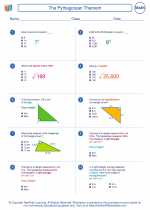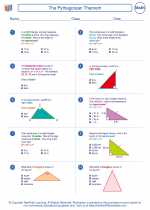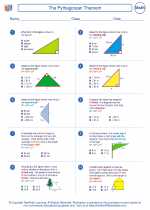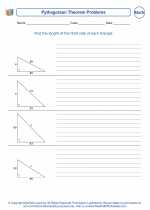Financial Planning
Financial planning is the process of setting, planning, and achieving financial goals. It involves analyzing your current financial situation, identifying your financial goals, and creating a plan to help you reach those goals. Financial planning covers a wide range of areas including budgeting, saving, investing, managing debt, and retirement planning.
Key Components of Financial Planning
- Setting Financial Goals
- Assessing Your Current Financial Situation
- Creating a Budget
- Saving and Investing
- Managing Debt
- Risk Management and Insurance
- Retirement Planning
Study Guide
- Understand the importance of financial planning in achieving long-term financial security.
- Learn how to create a personal budget to effectively manage income and expenses.
- Explore different saving and investment options and understand the risks associated with each.
- Understand the impact of debt on financial planning and learn strategies to manage and reduce debt.
- Learn about different types of insurance and their role in managing financial risk.
- Explore retirement planning options and the importance of starting early in saving for retirement.
Remember, financial planning is a dynamic process and needs regular review and adjustments to align with changing life circumstances and financial goals. By understanding and implementing these principles, you can take control of your financial future and work towards achieving your financial goals.
.◂Math Worksheets and Study Guides Seventh Grade. The Pythagorean Theorem
Study Guide The Pythagorean Theorem
The Pythagorean Theorem  Study Guide
Study Guide Pythagorean Theorem Definitions
Pythagorean Theorem Definitions  Worksheet/Answer key
Worksheet/Answer key The Pythagorean Theorem
The Pythagorean Theorem  Worksheet/Answer key
Worksheet/Answer key The Pythagorean Theorem
The Pythagorean Theorem  Worksheet/Answer key
Worksheet/Answer key The Pythagorean Theorem
The Pythagorean Theorem  Worksheet/Answer key
Worksheet/Answer key The Pythagorean Theorem
The Pythagorean Theorem  Worksheet/Answer key
Worksheet/Answer key Pythagorean Theorem Distance Problems
Pythagorean Theorem Distance Problems  Worksheet/Answer key
Worksheet/Answer key Pythagorean Theorem Problems
Pythagorean Theorem Problems  Worksheet/Answer key
Worksheet/Answer key Pythagorean Theorem Distance Problems
Pythagorean Theorem Distance Problems  Worksheet/Answer key
Worksheet/Answer key Pythagorean Theorem Problems
Pythagorean Theorem Problems  Worksheet/Answer key
Worksheet/Answer key Solving Right Triangles
Solving Right Triangles  Worksheet/Answer key
Worksheet/Answer key Solving Right Triangles
Solving Right Triangles 

 Study Guide
Study Guide
 Worksheet/Answer key
Worksheet/Answer key
 Worksheet/Answer key
Worksheet/Answer key
 Worksheet/Answer key
Worksheet/Answer key
 Worksheet/Answer key
Worksheet/Answer key
 Worksheet/Answer key
Worksheet/Answer key
 Worksheet/Answer key
Worksheet/Answer key
 Worksheet/Answer key
Worksheet/Answer key
 Worksheet/Answer key
Worksheet/Answer key
 Worksheet/Answer key
Worksheet/Answer key
 Worksheet/Answer key
Worksheet/Answer key

The resources above cover the following skills:
Geometry (NCTM)
Analyze characteristics and properties of two- and three-dimensional geometric shapes and develop mathematical arguments about geometric relationships.
Create and critique inductive and deductive arguments concerning geometric ideas and relationships, such as congruence, similarity, and the Pythagorean relationship.